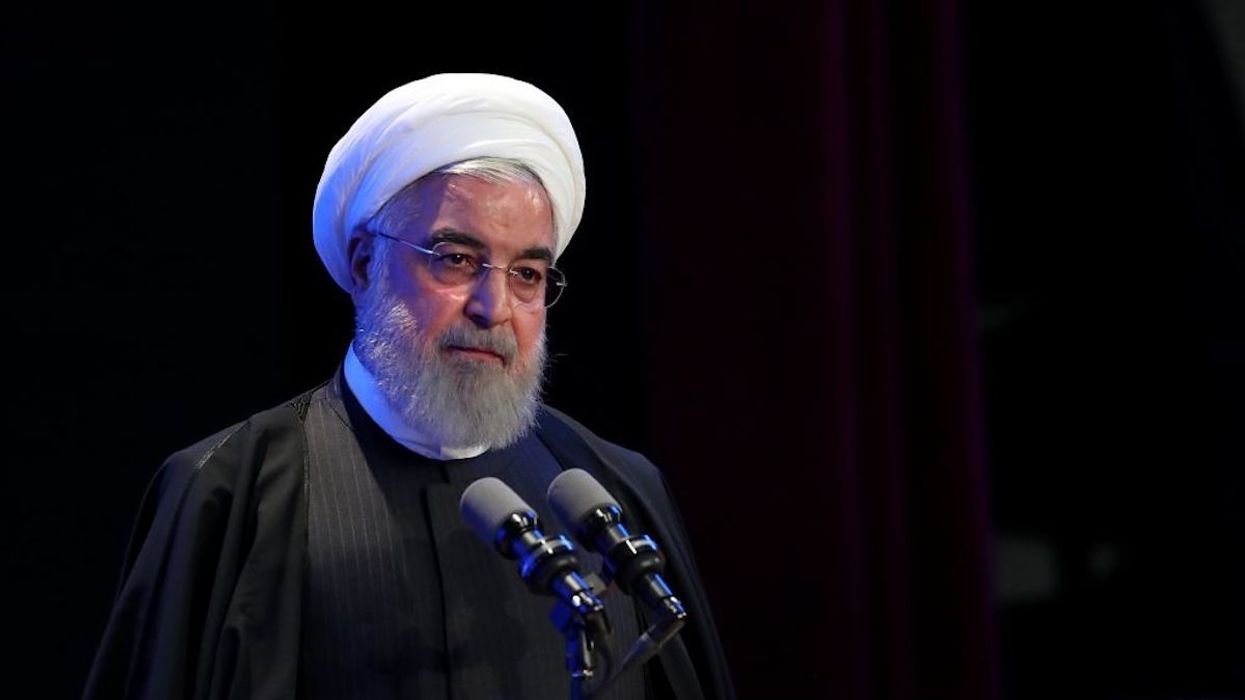
Iran President Hassan Rouhani (Photo by IRANIAN PRESIDENCY / HANDOUT/Anadolu Agency via Getty Images

Will the U.S. respond?
Iran has been taking advantage of recent political unrest in Iraq by secretly stockpiling short-range missiles inside the country, the New York Times reported Wednesday.
The buildup is part of Iran's widening effort to assert dominance in the Middle East and could pose a threat to American troops as well as allies in the region such as Israel and Saudi Arabia, U.S. sources told the Times.
Both Iraq and Iran have been gripped by deadly protests in recent months, with more than 1,000 people reported dead as a result of protests in Iran. But public unrest has not seemed to slow Iranian leadership down from engaging in what the Times calls a "shadow war."
Iran has been attacking countries in the Middle East of late but disguising the origin to diminish the chances of counterattacks. Iran's stockpiling of short-range missiles in Iraq also serves as a strategic deterrent. If Iran were to face an attack, it could potentially strike back with the missiles stored outside its borders.
The missiles have an estimated range of 600 miles and are capable of reaching Jerusalem from outside Baghdad.
The same day that the news broke, a letter was released from the French, German, and British ambassadors to the United Nations alleging that Iran now has nuclear-capable missiles.
According to CNN, in the letter, "the ambassadors listed four examples of activity indicating nuclear-capable missiles, adding that 'Iran's developments of nuclear-capable ballistic missiles and related technologies is inconsistent' with a UN resolution restraining the country from doing so."
The U.N. resolution the letter cited endorsed the 2015 Iran nuclear deal, which President Donald Trump pulled the U.S. out of in 2018 but which is still supported by the United Kingdom, France, Germany, China, and Russia.
The letter cited footage of a flight test for a new Shahab-3 ballistic missile — which has a range of about 600 miles — equipped with a maneuverable re-entry vehicle that makes it "technically capable" of delivering a nuclear weapon.
Iranian Foreign Minister Mohammad Javad Zarif has denied the allegation on social media.
These moves come amid a growing presence of U.S. military in the Middle East. About 14,000 troops have been sent to the region since May, and reports Wednesday said that the Trump administration is considering sending 14,000 more, though the Pentagon has denied the claim.